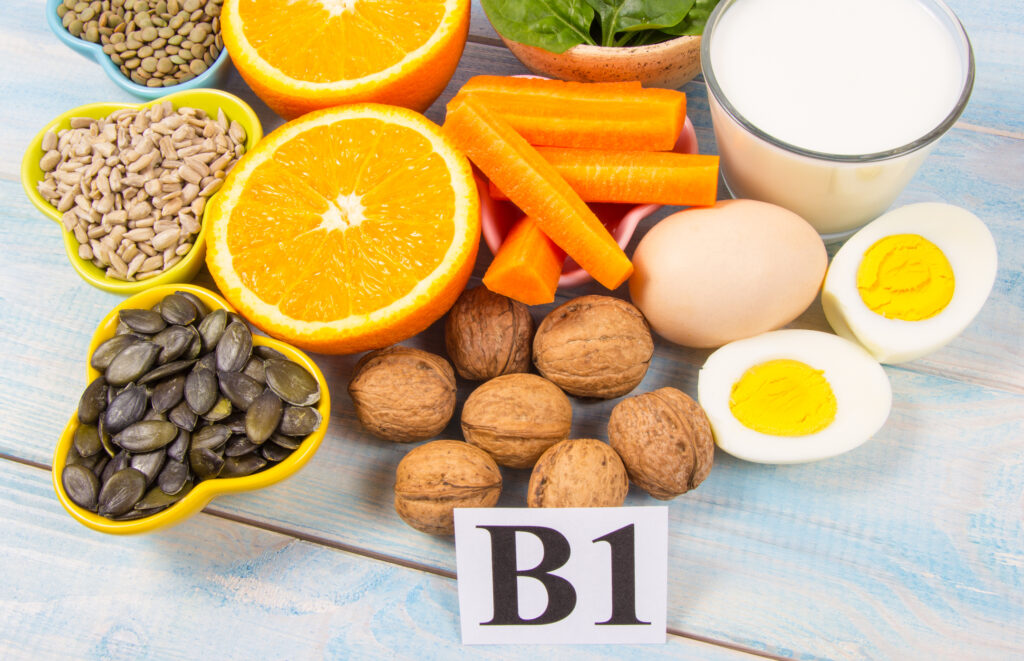- Empty cart.
- Continue Shopping
The Importance of Vitamin B1 for Energy Metabolism

Vitamin B1, also known as thiamine, is a water-soluble vitamin that plays a crucial role in energy metabolism. It is an essential nutrient that the body requires to convert carbohydrates into energy. We will explore the significance of vitamin B1 in energy metabolism and its overall impact on our health and well-being.
I. Thiamine and Energy Production
1. Conversion of Carbohydrates
Thiamine is a cofactor in key enzymes involved in the breakdown of carbohydrates, such as glucose, into usable energy. This process occurs within the mitochondria, which are often referred to as the “powerhouses” of the cells.
2. ATP Synthesis
Adenosine triphosphate (ATP) is the primary energy currency of the cell. Thiamine is essential for the production of ATP through oxidative phosphorylation, a process that occurs during cellular respiration.
3. Nervous System Function
The brain is particularly reliant on glucose for energy. Thiamine ensures that the brain has a constant and adequate supply of energy, supporting cognitive functions and overall mental well-being.
II. Role in Enzyme Function
1. Activation of Enzymes
Thiamine is a coenzyme for several enzymes involved in energy metabolism. It aids in the activation of these enzymes, allowing them to carry out their functions effectively.
2. Pyruvate Dehydrogenase Complex
Thiamine is a crucial component of the pyruvate dehydrogenase complex, which is responsible for converting pyruvate (a product of glucose metabolism) into acetyl-CoA. This is a pivotal step in the process of energy production.
III. Prevention of Deficiency
1. Impact of Deficiency
A deficiency in vitamin B1 can lead to a condition known as beriberi. This disorder manifests with symptoms such as muscle weakness, fatigue, confusion, and even heart problems due to a lack of energy production.
2. High-Risk Groups
Certain individuals are more prone to thiamine deficiency, including those with alcohol use disorder, individuals with poor dietary habits, and people with certain medical conditions that affect nutrient absorption.
IV. Food Sources of Thiamine
1. Whole Grains
Whole grains, such as brown rice, whole wheat bread, and oats, are excellent sources of thiamine.
2. Legumes and Nuts
Beans, lentils, and nuts like sunflower seeds and macadamia nuts are rich in thiamine.
3. Lean Meats and Fish
Lean meats like pork and beef, as well as fish like trout and salmon, are good sources of thiamine.
Finally, Vitamin B1, or thiamine, is an indispensable nutrient for energy metabolism in the body. It plays a vital role in converting carbohydrates into usable energy, ensuring that our cells, tissues, and organs function optimally. A deficiency in thiamine can lead to serious health issues, underscoring the importance of including thiamine-rich foods in our diet. By understanding the significance of vitamin B1, we can make informed choices about our nutrition, ultimately supporting our overall health and well-being. Remember, a balanced diet that includes a variety of thiamine-rich foods is a key factor in maintaining optimal energy levels and overall vitality.








